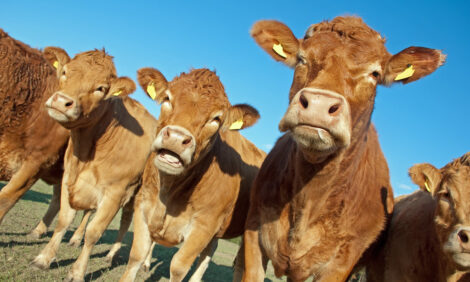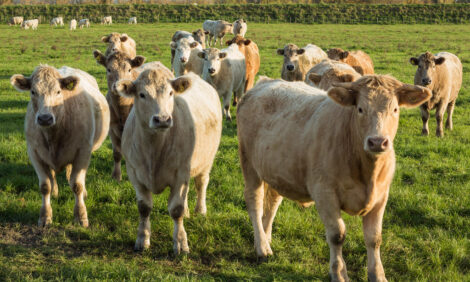



Taiwan Urged to Maintain US Beef Ractopamine Ban
TAIWAN - Several local groups reiterated Wednesday that the government should maintain its ban on imports of US beef that contain ractopamine, saying there are still concerns over a proper control mechanism and the safety of the feed additive.FocusTaiwan reports that the Consumers Foundation said it is opposed to lifting the ban because there is no strict control system to ensure zero health risk.
Despite the ban on US beef, there have been reports of ractopamine residues found in imported beef products on Taiwan supermarket shelves, said Mark Chang, the foundation's vice chairman.
"Without a comprehensive control mechanism, the public will be exposed to serious health risks if the government decides to allow controlled levels of ractopamine in meat," Mr Chang said at a public hearing hosted by lawmakers of the main opposition Democratic Progressive Party.
The Homemakers Union and Foundation also expressed safety concerns, citing an incomplete assessment of the health risks of ractopamine, a leanness enhancing drug used in livestock feed in some countries.
Focus Taiwan reports that another local group devoted to the rights of local farmers said that any decision to allow ractopamine residues in US beef imports would affect domestic cattle and pig farmers.
In support of the groups' position, DPP lawmaker Yu Emi-nu said the use of the feed additive is unnecessary.
"We are not opposed to the importation of US beef but rather to the consumption of beef containing ractopamine," he added.
In response, Hsu Kuei-sen, chief of the Animal Husbandry Department under the Council of Agriculture (COA), reiterated that the government has no "preset stance" on the issue and will continue to assist with the development of the local cattle and pig industry.
Hsu also encouraged the public to "consume more local products," noting that Taiwan beef accounts for only seven per cent of the beef products on the domestic market.
Hsu Tien-lai, director of the COA's Bureau of Animal and Plant Health Inspection and Quarantine, said the government will continue to communicate with the public and solicit opinions from different groups before making a decision on the beef issue.
The government will stick with the principles of ensuring food safety, protecting the local farming industry and adhering to international standards, the director added.
Concerns about ractopamine resurfaced in late January after Raymond Burghardt, chairman of the American Institute in Taiwan, said in Taipei that Taiwan's ban on US beef imports that contained ractopamine was a key trade issue between the two countries.
Ractopamine is allowed in livestock feed in 20-plus countries around the world but is banned in Taiwan, China, the European Union states and several other countries.
Washington has been pressing Taipei to relax its ban on imported beef containing ractopamine residues. The extended suspension of talks between the two sides under the Trade and Investment Framework Agreement (TIFA) in early 2011 was seen as linked to Taiwan's ractopamine ban.
Bilateral talks under the TIFA have been stalled since 2007.
Amid speculations that the Taiwan government might ease its ractopamine ban to resolve the US beef issue, local cattle a
TheCattleSite News Desk


